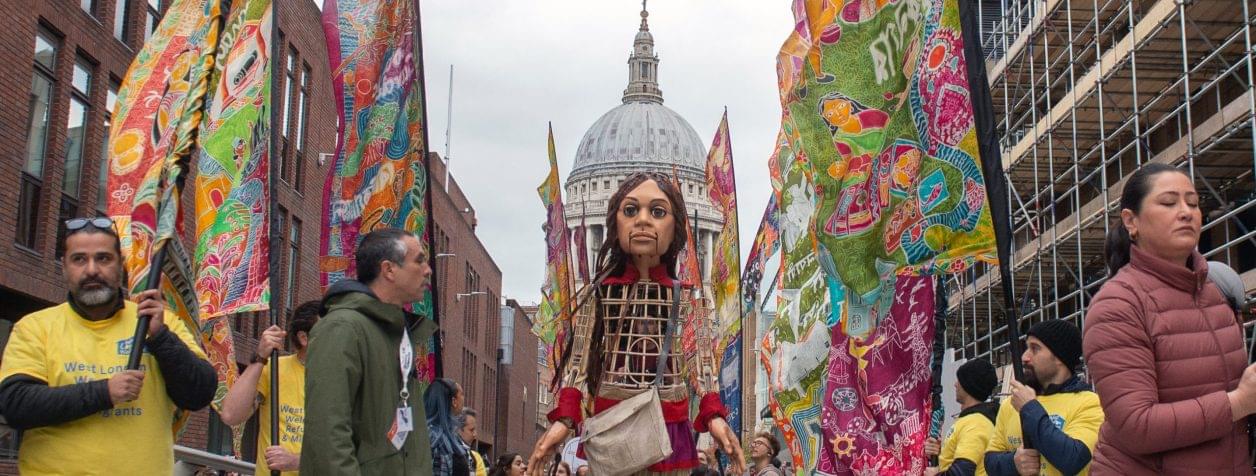Resettlement is the voluntary relocation through approved legal routes for recognised refugees from a country in which they have claimed asylum, to a third country (i.e. the UK) with the purpose of permanent settlement.
Those considered for resettlement are considered to be the most vulnerable amongst their population for whom resettlement is considered to be the appropriate safe and long-term solution. They may reside in refugee camps or urban centres in a country of asylum, having fled their country of origin for a myriad of reasons, including war and conflict. Their personal situation and vulnerabilities, coupled with a lack of available support in the country of asylum may identify them as high need and suitable for resettlement to a third country.
Resettlement allows the UK Government to support the humanitarian response to the global refugee population whilst also extending support to those who neighbour countries with conflicts and thus host large populations of refugees.
The UK currently operates four resettlement schemes:
- The UK Resettlement Scheme (UKRS)
- The Mandate Resettlement Scheme
- The Community Sponsorship Scheme
- Afghan Citizens Resettlement Scheme
The UK works with the United Nations High Commissioner for Refugees (UNHCR) who is charged with determining refugee status as per the Refugee Convention. The UNHCR is further charged with identifying and processing individuals for resettlement, prior to UK acceptance and security clearance. The UK Home Office thereafter works in partnership with local authorities to house and support those resettled. Local authorities often work in partnership with local charities for the provision of wraparound support.
Those resettled to the UK are granted Indefinite Leave to Remain and refugee status upon arrival.
In addition to refugee resettlement schemes, there exist other schemes which the UK government may introduce to allow certain people of designated nationalities to obtain a visa according to need. Presently there are 3 such schemes:
- Homes for Ukraine Scheme: Ukraine Matching Service
- Hong Kong British Nationals (Overseas) Visa
- EU Settlement Scheme
No one would exchange his country for a foreign land if his own afforded him the means of living a decent and happy life
Pope Leo XIII, Rerum Novarum
DIFFERENTIATING BETWEEN ASYLUM & RESETTLEMENT
Asylum is a protection granted by a state to individuals forced to flee their own for fear of persecution, who are recognised as refugees as per the definition in the Refugee Convention.
Individuals may be considered refugees as a result of their experiences, but formal recognition is required via an asylum application in order for them to receive state protection. Applications for asylum in the UK can only be made from within the territory, hence the arrivals by boat which have dominated media headlines.
Applying for asylum is a right and is guaranteed in international law, which the UK is bound to uphold. You cannot be penalised for your journey, nor your mode of entry, in consideration of your asylum application.
The UK has committed to resettle refugees globally, but this is complementary to its asylum system – the two are distinctly separate processes and resettlement programmes do not replace asylum systems.
On being resettled to the UK, individuals do not have to go through the asylum system as they have already been recognised as refugees by the UNHCR. Further, resettled refugees receive wraparound support on arrival whereas those granted asylum within the UK are required to support themselves upon receiving recognition of refugee status.
Image: Little Amal in London Credit: Catholic Church England and Wales on Flickr


